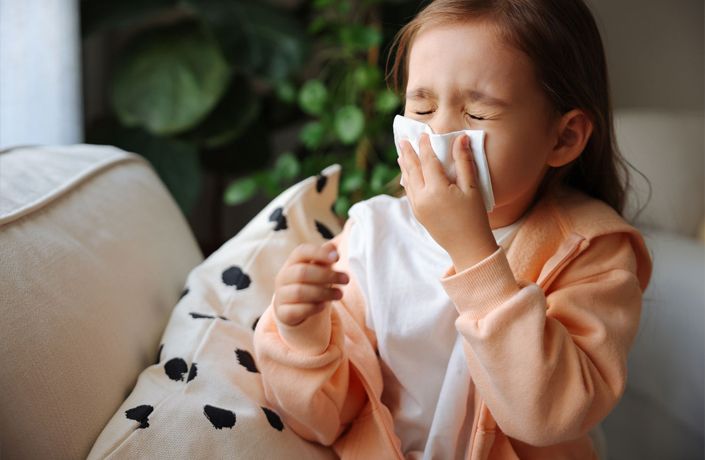
Allergic Lung and nose conditions
There are a number of allergic conditions that can affect the lungs and nose in children. These include:
- Allergic rhinitis: This is a common condition that causes inflammation of the lining of the nose. It is often triggered by allergens such as pollen, dust mites, or pet dander. Symptoms of allergic rhinitis include sneezing, runny nose, itchy nose and eyes, and postnasal drip.
- Asthma: This is a chronic condition that affects the airways of the lungs. It is often triggered by allergens, exercise, cold air, or respiratory infections. Symptoms of asthma include wheezing, coughing, shortness of breath, and chest tightness.
- Chronic rhinosinusitis: This is a long-term inflammation of the sinuses. It can be caused by allergies, infections, or other factors. Symptoms of chronic rhinosinusitis include nasal congestion, facial pain, and postnasal drip.
- Nasal polyps: These are non-cancerous growths that can form in the lining of the nose. They are often caused by allergies or chronic rhinosinusitis. Symptoms of nasal polyps include nasal congestion, facial pain, and a blocked nose.
The symptoms of these conditions can overlap, so it is important to see a doctor for a diagnosis. The doctor will ask about your child’s symptoms and medical history, and may perform a physical examination or order tests such as allergy testing or a chest X-ray.
The treatment for these conditions depends on the specific condition and its severity. Treatment may include medications, such as antihistamines, decongestants, or steroids, or lifestyle changes, such as avoiding allergens or getting regular exercise.
If your child has any of these conditions, it is important to work with their doctor to develop a treatment plan that will keep their symptoms under control. With proper treatment, most children with these conditions can live normal, active lives.
Here are some additional tips for managing pediatric allergic lung nose diseases:
- Teach your child how to avoid allergens.
- Make sure your child gets regular exercise.
- Get enough sleep.
- Manage stress.
If you have any questions or concerns about pediatric allergic lung nose diseases, please talk to your doctor.
